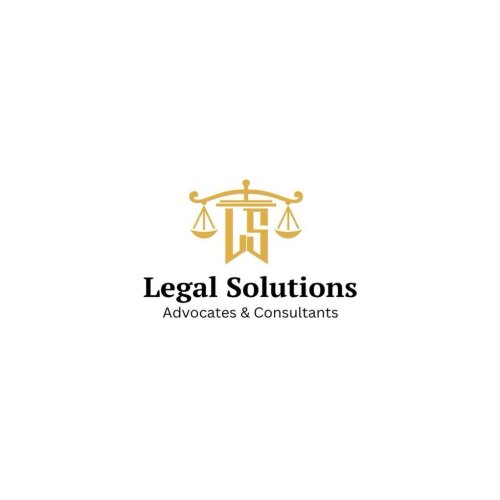Best Appeal Lawyers in Rawalpindi
Share your needs with us, get contacted by law firms.
Free. Takes 2 min.
List of the best lawyers in Rawalpindi, Pakistan
About Appeal Law in Rawalpindi, Pakistan
Appeal law in Pakistan, and particularly in Rawalpindi, is a crucial part of the judicial system, allowing for the review of lower court decisions. This process ensures judicial fairness and provides a mechanism for correcting errors. Appeals can be made in both civil and criminal cases, enabling parties dissatisfied with a decision to seek a reevaluation at a higher court level. Understanding the complexities of appeal law can greatly influence the outcome of a case. The appeal court may affirm, reverse, or modify the original decision.
Why You May Need a Lawyer
Many circumstances might lead someone to seek legal assistance in appeal cases. Common scenarios include: when a judgment may have been based on incorrect facts or improperly applied law, allegations of procedural errors during the trial, dissatisfaction with the outcome due to perceived bias or unfair treatment, or the emergence of new evidence that significantly impacts the case. Engaging a lawyer can provide guidance through procedural complexities, help in preparing the necessary documentation, and effectively present arguments in the higher courts.
Local Laws Overview
The appeal process in Rawalpindi is governed by local and national laws, which are largely outlined in the Code of Civil Procedure for civil appeals and the Code of Criminal Procedure for criminal appeals. Both codes detail the procedures, timelines, and requirements for filing an appeal. It’s important to note that there are specific time limits within which an appeal must be lodged, failing which the right to appeal may be forfeited. Furthermore, not all decisions are appealable, and legal advice may be necessary to ascertain whether a case qualifies for appeal under these laws.
Frequently Asked Questions
What is the time limit for filing an appeal?
The time limit for filing an appeal depends on the nature of the appeal. For civil cases, it is typically 30 days from the judgment, whereas for criminal cases, it may vary between 7 to 30 days based on the court's decision level.
Can any decision be appealed?
No, not all decisions can be appealed. Generally, only final judgments and decisions significantly affecting parties' rights are appealable. Consult a lawyer to determine if your case qualifies.
What is the first step in the appeal process?
The first step is to file a notice of appeal. This must be filed in the same court that rendered the decision within the prescribed time frame. This document formally initiates the appeal process.
Do I need a lawyer for filing an appeal?
While it is possible to file an appeal without a lawyer, it is not advisable. Legal representation increases the likelihood of success due to the complexities involved in legal procedures and persuasive argumentation required at this level.
What happens if the appeal is successful?
If an appeal is successful, the appellate court may reverse or modify the lower court’s decision. In some cases, the matter may be remanded for a new trial.
Is there a chance the original court's decision is upheld?
Yes, if the appellate court finds no error in the original decision or procedure, it may uphold the lower court's ruling.
What documents are typically required for an appeal?
Documents usually include a copy of the notice of appeal, the judgment from the lower court, transcripts of the trial proceedings, and any other documents submitted as evidence during the original trial.
Can new evidence be introduced during an appeal?
Typically, appeals are decided on the existing record, and new evidence is not considered unless extraordinary circumstances justify its inclusion.
How long does the appeal process take?
The appeal process can vary in length, often taking several months to a year, depending on the complexity of the case and the court's schedule.
What costs are involved in filing an appeal?
Costs can include court fees, transcript production fees, and attorney fees. It's important to discuss potential costs with your attorney beforehand.
Additional Resources
For further assistance, individuals may consider reaching out to the Punjab Bar Council, Pakistan Bar Council, or the Lahore High Court Rawalpindi Bench. These bodies can provide valuable information and potential referrals to qualified legal professionals specializing in appeals.
Next Steps
If you believe you have grounds for an appeal, it is crucial to act swiftly due to the strict time limits involved. Begin by consulting with a legal professional who specializes in appellate law to assess the viability of your case and proceed with the necessary steps to file an appeal. Arrange a consultation to discuss your situation and obtain guidance tailored to your circumstances. Ensure that all procedural steps are meticulously followed to preserve your appeal rights.
Lawzana helps you find the best lawyers and law firms in Rawalpindi through a curated and pre-screened list of qualified legal professionals. Our platform offers rankings and detailed profiles of attorneys and law firms, allowing you to compare based on practice areas, including Appeal, experience, and client feedback.
Each profile includes a description of the firm's areas of practice, client reviews, team members and partners, year of establishment, spoken languages, office locations, contact information, social media presence, and any published articles or resources. Most firms on our platform speak English and are experienced in both local and international legal matters.
Get a quote from top-rated law firms in Rawalpindi, Pakistan — quickly, securely, and without unnecessary hassle.
Disclaimer:
The information provided on this page is for general informational purposes only and does not constitute legal advice. While we strive to ensure the accuracy and relevance of the content, legal information may change over time, and interpretations of the law can vary. You should always consult with a qualified legal professional for advice specific to your situation.
We disclaim all liability for actions taken or not taken based on the content of this page. If you believe any information is incorrect or outdated, please contact us, and we will review and update it where appropriate.










